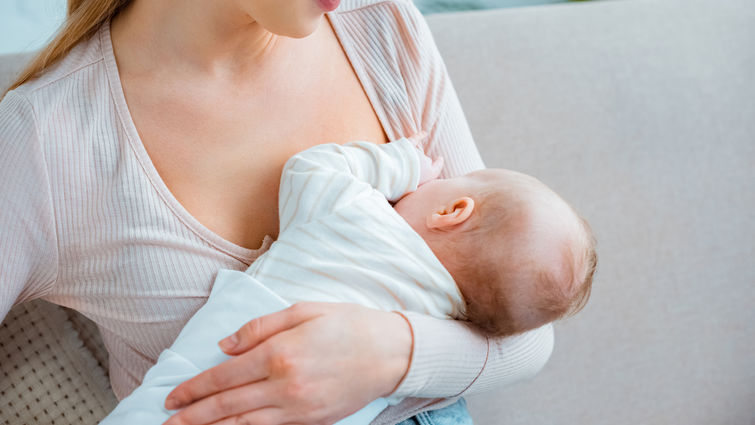
The Centers for Disease Control and Prevention (CDC), the Society for Maternal-Fetal Medicine (SMFM), and the American College of Obstetricians and Gynecologists (ACOG) all recommend that people who are pregnant or breastfeeding should receive the COVID-19 vaccine.
Heather Figueroa, MD, an obstetrician and gynecologist at Loma Linda University Health, says that while there are no specific studies yet addressing lactation and COVID-19, developing data show vaccine safety.
“With what we know in these populations of pregnant and non-pregnant people, along with the mechanism of how these vaccines work, it is felt the vaccine is also safe post-delivery during the time of lactation and could in fact protect the breastfeeding infant as well,” Figueroa says.
What do we know about the potential risks so far?
Since October 18, 2021, more than 168,000 pregnancies have been reported in the CDC’s v-safe post-vaccination health tracker — a smartphone-based tool vaccinated individuals can voluntarily sign up for that uses text messaging and web surveys to monitor the safety of COVID-19 vaccines in near real-time. Additionally, Figueroa says more than 5,000 pregnant women enrolled in a separate v-safe pregnancy registry have not indicated any safety concerns.
Side effects of the vaccine have shown to be similar with pregnant and non-pregnant people, including injection-site reactions, fatigue, and chills being most common.
“With the ongoing safety data, the risks of COVID-19 infection far outweigh the risks of the COVID-19 vaccine,” she says.
Those who are pregnant and contract COVID-19 are three times more likely to need ICU care, two to three times more likely to need advanced life support and a breathing tube, and are more likely to die of COVID-19.
What are the benefits of getting the COVID-19 vaccine while breastfeeding?
The best thing a breastfeeding mother can do for a newborn is be there for her new baby. Figueroa says being vaccinated protects the mother from COVID-19 pneumonia and its related consequences such as difficulty caring for her newborn due to severe illness, hospitalization, or even death.
Additionally, being vaccinated while breastfeeding allows the mother to share her protective antibodies against COVID-19 with her newborn via breast milk, providing some protection to her newborn from COVID-19.
“This has been proven effective in studies with other vaccines such as influenza,” Figueroa says. “Early studies have shown that the COVID-19 antibodies produced by vaccination also end up in breast milk.”
What about other concerns?
Figueroa says she would want to know what specific concerns a mother has regarding the vaccination while breastfeeding.
“The vaccine does not cause infection or a contagious infection,” she says. “It provides an incredible way for a mother to use her body and breastmilk to protect her baby and family from COVID-19. By getting vaccinated, she is providing her child with the greatest gift of all — protecting her life so that she can continue to be there to care for her newborn and watch her child grow up.”
The bottom line:
Receiving the COVID-19 vaccine while breastfeeding has benefits to both you and your baby. The side effects of the COVID-19 vaccine are mild and risks are very rare when compared to the real risk of getting a COVID-19 infection while not being vaccinated, Figueroa says.
It’s important to remember that information is rapidly evolving. Continue to ask your provider questions if you have concerns. They can advise you fully about both the potential benefits and risks. Visit our website to schedule an appointment.
